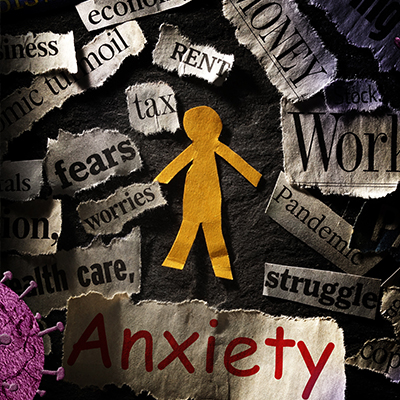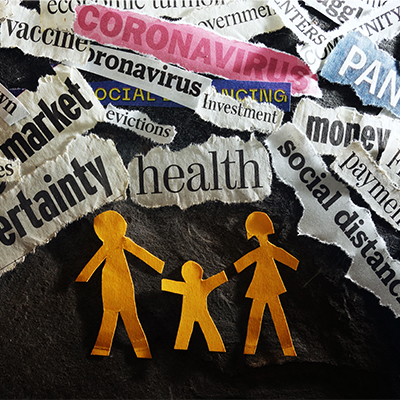Ten things COVID-19 has taught us about the economy – unisabusiness magazine – Connect with UniSA
Table of Contents
ToggleAll around the globe a amount of economies, like Australia’s, are starting up to emerge from lockdown. When the coronavirus has not disappeared, governments and people are progressively aware of what they will need to do to take care of ongoing dangers and preserve our economies afloat.
So, what has COVID-19 taught us about today’s financial system? Below, Professor Andrew Beer, Govt Dean, UniSA Enterprise shares 10 things that COVID-19 has taught us about the Australian financial system.
1. Source chains are longer and a lot more fragile than we considered
In Australia, and globally, we arrived to realise that essential resources and infrastructure – from chemical compounds utilized to take a look at for COVID-19 as a result of to respirators to support hospitalised people – arrived from a smaller number of resources a prolonged way away. The consequence was enormous delays, as stores had been not able to resource provides that had in no way beforehand been unavailable, leading to a nationwide discussion about the will need to build sovereign capacity in manufacturing and other successful functions.

2. In a crisis, people nonetheless panic obtain, even when there is no shortage
In Australia, a shortage of grocery store inventory made headlines across Australia. Empty shelves of rest room paper quickly prolonged to shortages of hand sanitisers, soaps, and pantry things this kind of as flour and pasta. This led to shops restricting purchases per transaction, the closest we’ve appear to rationing considering the fact that Globe War II. Surely, hoarding does not make feeling, but in uncertainty, irrational behaviour prevails.
3. We can close down our economies remarkably quickly
As soon as the link amongst vacation and COVID-19 was established, governments all-around the globe brought journey to a halt, imposing curfews and efficiently inserting their economies into ‘deep freeze’. Additional than 5 months given that the 1st scenario was reported in Wuhan, global vacation is however limited, with several condition and territory border shutdowns also in outcome within Australia. Extra broadly, we closed the greater part of our businesses: cafes, hotels and places to eat, as effectively as fitness centers, areas of worship and, in areas, educational institutions. A lot of other small business entrepreneurs realised there was minor value in continuing to trade in an atmosphere devoid of customers, with their voluntary closures introducing to the unemployment queues and the perception of major alter.
4. Data know-how genuinely is as good as the buzz
Almost devoid of pause, organizations all over the environment transformed to on the internet activity enabled by movie-conferencing and online processing. On line meetings, distant income, and digital outreach products and services swiftly pivoted deal with-to-confront providers to on the net functions. Now, as companies look at how they might return to some semblance of usual, we really should anticipate several of these on the net adjustments to stay.
5. Made economies are extremely dependent on significant-contact industries to make work
As cafés, dining places, spas and gyms closed, unemployment queues soared, demonstrating just how dependent Australia is on shopper provider pushed industries. Although April stats discovered unemployment at 6.2 for every cent, the number of people with a task collapsed by pretty much 600,000 – the most significant drop in heritage. As Australia starts off to gear up for the long term, these are the sectors governments are trying to find to kick-start off.

6. The overall health financial state is additional than just emergencies
Authorities actions to guarantee all probable overall health means were obtainable to deal with COVID-19 had the perverse end result of placing overall health staff out of work as dentists and slight surgical procedures had been shut down. The hasty transfer to end all ‘non-urgent’ surgeries noticed thousands of Australians needing operations such as hip surgeries or knee replacements still left in limbo – and so much too the medical doctors, nurses and clinical expert inside those people fields – illustrating the broad scope of the health and fitness sector. Elective surgeries built their return on 14 May possibly in South Australia.
7. The long term of home markets is unsure, particularly business home
Many firms, getting learned they can work just about, have to be inquiring them selves why pay out lease? Especially, when a lot of key staff have discovered they a great deal choose to operate from household. With positive aspects ranging from a lack of extensive commutes in rush hour, to proven productiveness ensuing from flexible perform, the pandemic has shown the validity and effectiveness of virtual workplaces.
8. In the 21st century, every single financial system is dependent on other people
No matter whether it is the education and learning sector, production, tourism or mining, international need is pivotal to accomplishment and no organization can escape the impact of shocks to major buying and selling companions. Critically, how each nation and every field respond has significant movement-on outcomes for others. In Australia, few people or learners have arrived from China, but ongoing need from Chinese steel mills has sustained our exports of iron ore. And, in the situation of iron ore, the profound effects of COVID-19 on Brazil has held costs and Australian export volumes sturdy.
9. Most folks nevertheless believe in their governments in a time of crisis
Globally, and in Australia in particular, compliance with governing administration lockdown provisions was high, enabling the reopening of some economies more rapidly and with greater security. Adherence to social distancing, travel limits and quarantines have seen South Australia grow to be successfully COVID-19-free. This achievement has extra to the State’s lustre as a protected vacation spot and brought forward pursuits such as important sports activities gatherings in front of a (scaled-down) group, the opening of bars, and the continuation of schooling.
10. Lastly, rebuilding economies requires for a longer time than shutting them down, but financial and labour industry reform has produced us considerably more versatile than we utilized to be
Already, environmentally friendly shoots are showing inside the economic landscape, but the challenge for us now, will be to nurture their expansion. Governments obviously have a job to enjoy, but so much too do particular person businesses and buyers. For owners of little firms and the professionals of much larger enterprises, this time of transition presents an prospect to rethink their businesses. This is not a time to retreat to exclusively nearby markets and nearby need. As an alternative, the brightest horizons are open for those people who go on to engage regionally but reach out to the world-wide stage.
